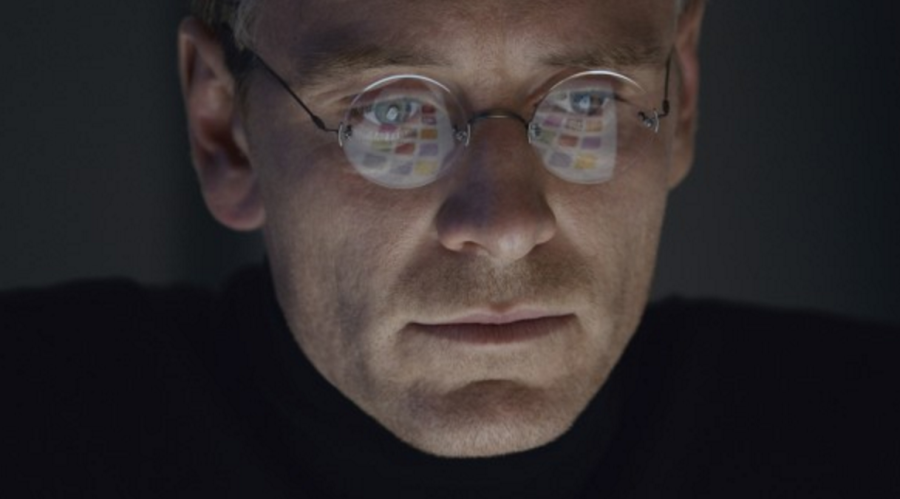Danny Boyle’s Steve Jobs is Worthwhile
Danny Boyle’s and Aaron Sorkin’s collaboration tells the media mogul’s story in a unique way
Steve Jobs portrays its title character as what we think of as a genius: eccentric, calculating, antisocial, egotistical, ambitious, sociopathic (for the most part), and Sheldon-Cooper-like. Like a computer, essentially. The neat thing about the film is that Aaron Sorkin’s script is also algorithmic; its three acts, which take place in 1984, 1988, and 1998, each revolve around Jobs preparing for the launch of a new product for which he is taking credit, and the majority of the film is just the dialogue leading up to those three launches. With the aid of Danny Boyle’s directing, in just three 30-60 minute periods leading up to a launch of a new product, we get to know Steve Jobs and watch him grow.
Michael Fassbender does an incredible job portraying Jobs. Although, from what I’ve read, the portrayal wasn’t accurate, he gave a great performance that will surely give Leonardo Dicaprio a run for his money at the upcoming Oscars in 2016. He’s in almost every scene of the film, and he perfectly captures the little quirks and eccentricities of the Steve Jobs that Sorkin and Boyle have conjured. The makeup for the film was definitely one of its strengths. There were times I didn’t recognize Fassbender and actually felt like I was looking at Steve Jobs.
He is strengthened by his loyal assistant Johanna, played wonderfully by Kate Winslet. Her Polish accent seems to become thick and then thin, but that might just be me. Overall, she does a good job and her character influences Jobs in positive ways. The other Steve, Steve Wozniak, is played by Seth Rogen in his surprisingly good dramatic debut. Jeff Daniels also plays John Sculley, the former CEO of Apple. Between the three launches, Jobs relationships with these three characters as well as with his daughter Lisa seamlessly develop.
One of Sorkin’s biggest criticisms as a screenwriter is his sometimes inauthentic-seeming dialogue, as he often will write over-dramatic lines that people would probably never say in real life. I won’t disagree with that claim, and the trend is subtle but evident in a few moments of Steve Jobs. With that said, the structure of his screenplay and the three acts justifies a couple ridiculous lines of dialogue here and there. What I really liked about the screenplay is that he managed to make me kind of hate Steve Jobs at the beginning and then redeem him later on just in those three pre-launch periods.
Some have called Steve Jobs boring and slow, and its most disliked aspect is probably the inaccurate portrayal of its protagonist, particularly the suggestion that Jobs created the NeXt device to force Apple’s hand (So I can avoid spoiling the plot, read more here: http://appleinsider.com/articles/15/10/25/separating-fact-from-fiction-in-aaron-sorkins-steve-jobs-film). Personally, I liked Steve Jobs and thought it was well done. It’s dialogue driven, which is why some people can’t sit through it, so it’s definitely not for the same crowd as The Fast and The Furious. But if you’re into drama biopics, or if the evolution of Apple as a company interests you, I would say check it out.


